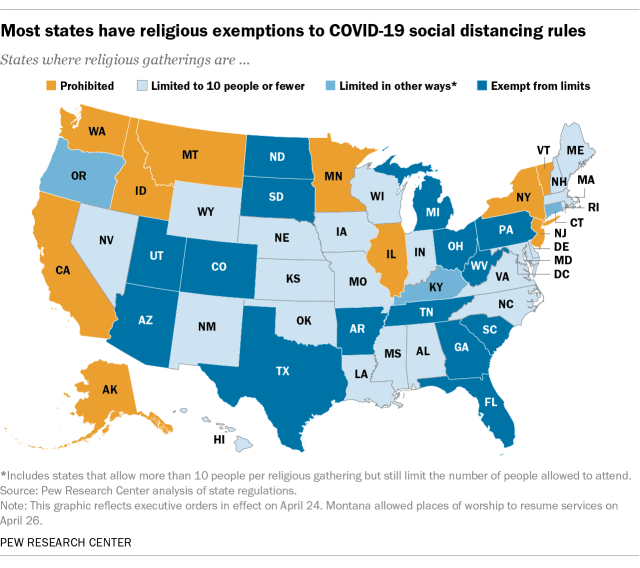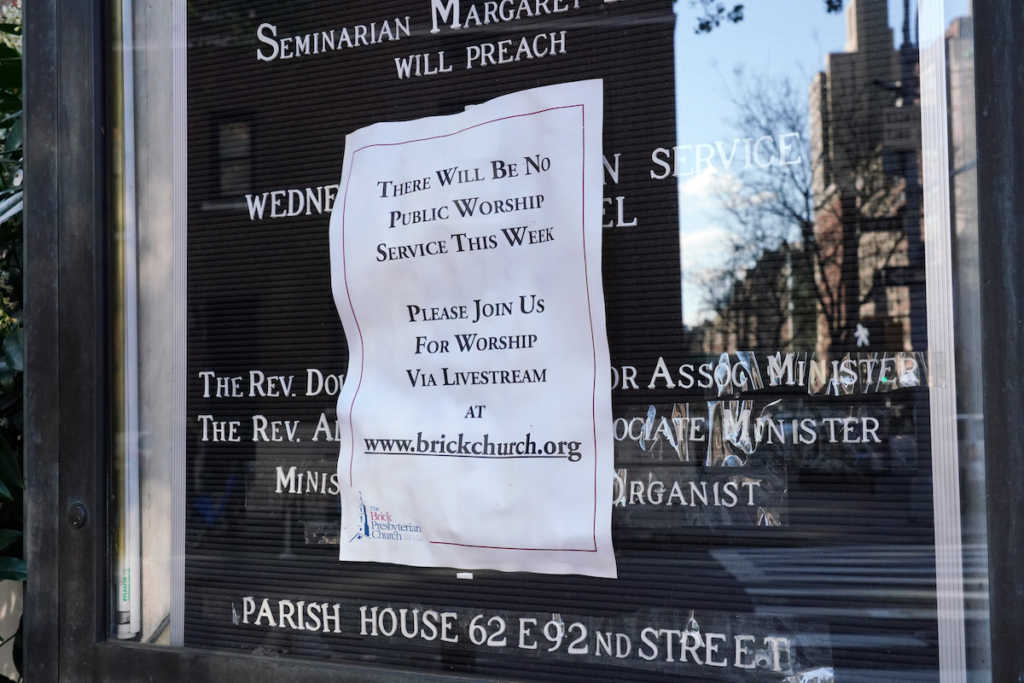In late March, when coronavirus-related restrictions were kicking into high gear, Kevin Gerald, a pastor in Washington state, took to Instagram to question his Democratic governor’s decision to declare his services “not essential.”
“His only references to religious organizations and spiritual people have been negative in nature,” Gerald wrote of Gov. Jay Inslee. “I’m not asking for gatherings or disregard for social distancing. … I’m asking people of faith to let the governor know that what we do matters.”
Most churches across the country have since resorted to fully online services, streaming Sunday morning sermons and worship set lists on Facebook and YouTube and forgoing any other previously planned on-campus events.
To be certain, the “non-essential” marker is referring to the physical gathering together of Christians. The same rules apply, right now, to sports fans and concert-goers. The work of the church, whether it’s happening in-person or over the internet, is still very much essential and is transpiring around the globe.
There is value, though, in the physical meeting of believers. In fact, Scripture mandates it (Hebrews 10:24-25). Eventually, we will get back to that place, but in the meantime, different states have taken different approaches to handling how coronavirus-related restrictions impact houses of worship.
While some have taken an entirely hands-off approach — like the governors of Utah, Arizona, Colorado, North Dakota, South Dakota, Texas, Arkansas, Tennessee, Michigan, Ohio, West Virginia, Pennsylvania, South Carolina, Georgia, and Florida — leaders in some localities have far overstepped appropriate authority. One mayor in Mississippi sicced more than a dozen police officers on a church for hosting drive-in services, in which no congregant had any physical contact with a fellow church-goer.
A group of churches in the progressive California are suing Gov. Gavin Newsom (D), claiming his strict bans on faith-based gatherings violates religious folks’ First Amendment rights. Patrick Scales, a pastor in Fontana, filed a federal lawsuit the day after preaching an impassioned sermon at his church’s Easter service.
Last week, a federal judge rejected the churches’ request to hold in-person services.
Authorities in 22 states as well as the District of Columbia have said religious gatherings are permitted, but only if they are limited to 10 people or less, according the Pew Research Center. In Rhode Island, for example, no more than five people are allowed to gather together. Oregon and Connecticut are bit more relaxed, permitting gatherings of up to 25 and 50 people, respectively. Kentucky, however, has banned “mass gatherings,” though state leaders have not specified how many people constitutes such an event.
The Centers for Disease Control and Prevention has continued to make the case that gatherings of more than 10 people should be cancelled for the time being.
These nine states, though, still continue to ban all in-person church gatherings:
- Alaska
- California
- Idaho
- Illinois
- Minnesota
- New Jersey
- New York
- Vermont
- Washington
Here is a map from Pew:




